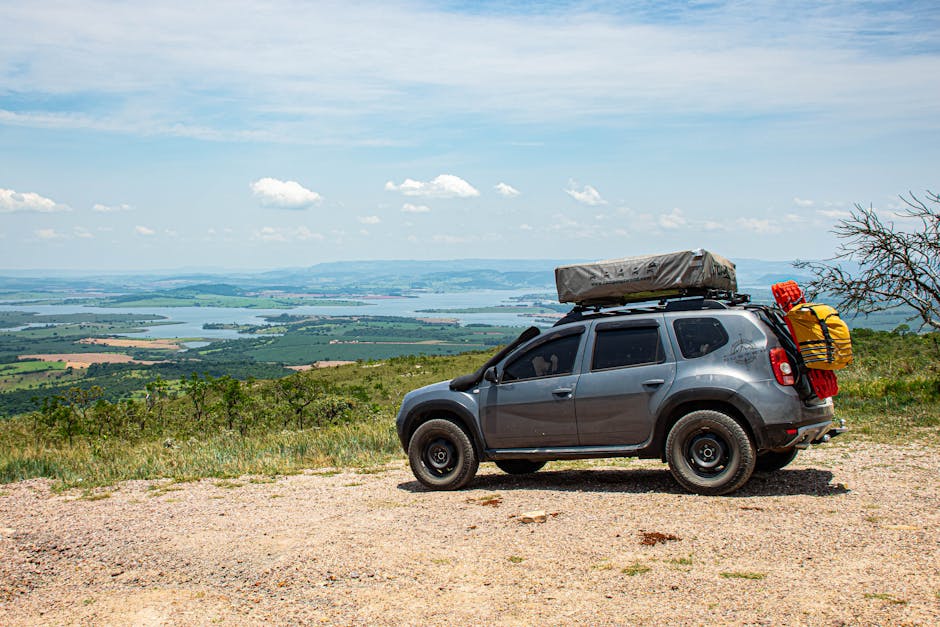Forget those simplistic "how-to" guides; let's delve into the often-ignored safety aspects of your RV's propane regulator – a component frequently overlooked until catastrophe strikes. Think of it as the stalwart guardian of your fuel supply; a neglected sentinel can unleash a torrent of trouble.
A common oversight? The insidious deterioration of the regulator's connections. Over time, grime, debris, and even subtle corrosion can compromise the gas-tight seal, creating a potential pathway for a catastrophic leak. This isn't merely inconvenient; it's a ticking time bomb in your mobile home, especially in the cramped quarters of an RV. Picture this: a high-pressure system vulnerable to a breach, a single minuscule fissure capable of unleashing a devastating chain reaction.
The regulator itself demands your attention. Monthly inspections are non-negotiable, even if your rig is hibernating for the winter. Scrutinize every inch for signs of trauma – dents, discoloration, or anything amiss. A loose fitting, a warped casing, even a peculiar hue—these are all ominous flags. Furthermore, monitor its temperature; an overheated regulator screams danger. A brief, proactive examination buys immeasurable peace of mind.
Beyond visual acuity, engage your other senses. A hissing sound, an unusual gurgle when the propane's flowing—these are audible warnings. Your olfactory senses are equally critical; detect that telltale sulfur scent, the safety additive in propane. The characteristic odor of propane is due to the addition of mercaptan. Even the faintest whiff necessitates immediate action. This pungent warning is akin to a canary in a coal mine, a subtle premonition of potential disaster.
Selecting the appropriate regulator is paramount; this isn't some trivial detail. Would you irrigate a sprawling vineyard with a garden hose? Absurd! Similarly, using an incompatible regulator invites pressure imbalances, compromised appliance efficiency, and, critically, serious safety breaches. Always meticulously consult your RV and appliance manuals; ensure perfect compatibility.
Finally, and this is crucial, pack a spare regulator. It's a modest investment offering robust protection against a potentially disastrous roadside breakdown. Store it in a dry, well-ventilated location, shielding it from both scorching sun and freezing temperatures. This inexpensive addition to your emergency kit could salvage your camping trip. Make it a non-negotiable item in your RV's essential toolkit.
Let's talk propane regulators – the unsung heroes (or villains, if neglected) of your RV's lifeblood. A catastrophic failure isn't just a possibility; it's a stark, chilling scenario easily avoided with a little savvy. Picture this: you're nestled in a scenic mountain meadow, the aroma of sizzling bacon drifting on the crisp morning air. Suddenly, a sibilant whisper escapes your rig – a subtle hiss that could easily be mistaken for wind. By sunrise, however, that subtle warning might have blossomed into a fiery inferno. Preventative care isn't optional; it's the cornerstone of safe RVing.
Efficient operation is secondary to safety. A malfunctioning pressure regulator can unleash a silent menace: a slow, insidious propane leak. Think of your RV as a tightly sealed pressure cooker, and even a tiny escape of this highly flammable gas can become a ticking time bomb. Propane leaks can be extremely dangerous due to its flammability and potential for explosions. That accumulated propane builds silently, a volatile cocktail awaiting ignition – a stray spark from a frayed wire, perhaps, or the careless flick of a lighter. The consequences? Devastating, possibly fatal.
Beyond the potential for utter devastation, a faulty regulator undermines operational efficacy. Suboptimal gas pressure leads to sluggish stoves, anemic heaters, and possibly irreparable damage to your appliances. Imagine the frustration of battling a temperamental burner or shivering in a poorly heated camper van. This translates to wasted propane, money, and your valuable leisure time. It's akin to driving on a flat tire; the longer you wait, the more costly the repercussions.
Consider this: the modest expense of a replacement regulator dwarfs the potential costs of a propane-related emergency. Weigh the cost of a new regulator against emergency room visits, extensive repairs, or even complete rig replacement. Protecting your loved ones and your precious investment becomes a compelling argument for vigilance. Peace of mind, friends, is priceless.
Regular maintenance not only enhances safety; it extends the lifespan of your regulator, maximizing its return on investment. A proactive approach – regular inspections, diligent cleaning, and a mindful approach to handling – is a smart investment, both financially and in terms of enduring peace of mind. It's a small price to pay for continued safe travels.
Ultimately, for the seasoned RV enthusiast, diligent propane regulator care transcends simple best practices. It represents a profound commitment to safe adventuring, ensuring the longevity of your journeys and the well-being of everyone on board. It's not just about the machinery; it's about responsible stewardship of your mobile home and the precious memories you forge within its walls. For more on ensuring safety on your adventures, check out our guide on best-active-vacations. Planning a trip? Consider adventure-holidays-for-over-50s for a truly unforgettable experience. If you are looking for something a little different, try vagabond-adventure-tours. For those who prefer a more structured trip, we also have lead-adventure-tours. Finally, remember to always check for overseas-adventure-travel-websites before you go!






